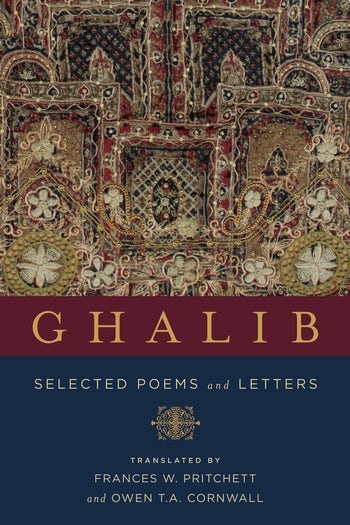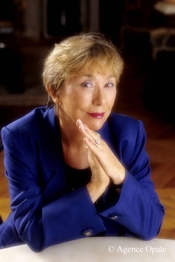The Personal and the Political in Goralik’s Poetry

“I watch the falling of empires in my brain/ with ridiculous calm”
Goralik’s next stops for her book tour in the US:
PennState in State College, PA on February 16th at 3:30 pm
- Hunter College in New York, NY on February 20th at 6:00 pm
- Princeton University in Princeton, NJ on February 21st at 4:30 pm
- Columbia University’s Harriman Institute, with co-editor/translator Maya Vinokour, in New York, NY on February 22nd at 6:30 pm
Part V of Found Life is dedicated to Goralik’s poems; poetry as a literary form perfectly encapsulates the fragmented nature of daily reality and the intimate world of individual interiority which characterizes much of her work, while offering a cross-sectional glimpse into that amorphous interaction between the personal and the socio-political. The following excerpt offers an excellent illustration of this hybrid nature of Goralik’s poetry—at once microscopic and meta-historical:
PETER, SET THE HOOK (2007)
Little sister says to Mommy, “Don’t touch me!”
Big sis says to Mother, “Leave me be!”
And on a day the calendar marks gray
They both head to factories or fields
And Lenin is young
And the rose of October
Has barely bloomed.
And do me a favor
Tell me ahead of time:
When it so hellishly withers, —
What will the Lord pick:
Snow White offs Rose-Red
Or Rose-Red whacks Snow White?
The first half of the poem consists of what seems to be a perfectly innocuous interaction of the most mundane nature, that between two daughters and their mother; this innocence extends to the then young Lenin and the October Revolution that was yet to change the course of history; references are made of the White movement, the anti-communist force that fought the Bolsheviks, also known as the Reds, in the Russian Civil War (1917-1922/3), in an again seemingly innocent act of frivolity on the part of the Lord—him choosing between white and red roses whichever catches his fancy—the outcome of great historical ramifications for the Russian people was prophesied. One senses the impotency of individuals being thrown into the whirlwind of history. The lighthearted dialogue which opens this otherwise quite heavy poem almost strikes one as absurd. Stephanie Sandler’s following remarks is especially helpful in appreciating this aspect of Goralik’s poetry:
“Goralik pursues her curiosity about psyche, verbal expression, and emotional development in her poetry by eschewing conventions of lyric subjectivity. Situations and commentary feel at once typical and idiosyncratic, as if an individual’s utterance might contain an entire world view.”
The following is an excerpt from a poem that Goralik dedicated to Maria Stepanova, a fellow poet:
From For MARIA STEPANOVA
In the realm of bliss and quiet
Under the warm currents’ murmur
Time placidly, not unkindly
Gnaws away our innards.
It does not gobble brutishly
But delectates each chunk,
Picking out the tendons
With a painstaking tongue.
Here the poet offers a beautiful meditation on the passage of time which is at once “placid” and cruel—cruel in its attritional effect on humanity in its flesh and bone. The image that is conjured up has an eerily somatic effect to it—one almost feels the sharp pain that must accompany time’s fetching of the “tendon” of soul.
Many of the poems included in Part V can seem quite enigmatic in their meanings, as they often resemble a collage of disparate utterances, conveying a pastiche of imageries, impressions, and sensations. But herein lies the charm of Goralik’s poem—a kaleidoscopic glimpse into the pulse of post-Soviet life and daily universals.
In the following excerpt, Goralik vaguely hints at the political reality of Russia before she quickly sublimates it by taking an interior turn of self-mockery:
From Book of Quotes
It’s an evil and dreary reality
But worth always keeping in mind:
That I’d have to be queen of the dumbasses
If this world, when I die, were to end…
How do we reconcile of the peculiar configuration of the personal and the political in Goralik’s poetry? One has the impression of being left in an ahistorical limbo in her poetic landscape. The response of Maria Stepanova, Goralik’s fellow poet, to the question of how she feels about her country in this interview with Los Angeles Review of Books is rather revelatory:
“It [Russia] doesn’t really know what it is; self-definition is not our strong suit. It’s a huge, beautiful, and misused piece of land, inhabited by more ghosts than mortals, full of histories no one cares to remember, so they just keep repeating themselves — full of larger-than-life possibilities and a complete inability to avoid disaster…One had to become Russia, with its wastelands, faded glory, and the horrifying innocence of its everyday life — to speak with its voices and see with its multiple eyes.”
Goralik’s poetry does precisely that—it takes one on a strange journey that is at once intimate and unfamiliar, one that resists linear simplification and ready interpretation.





